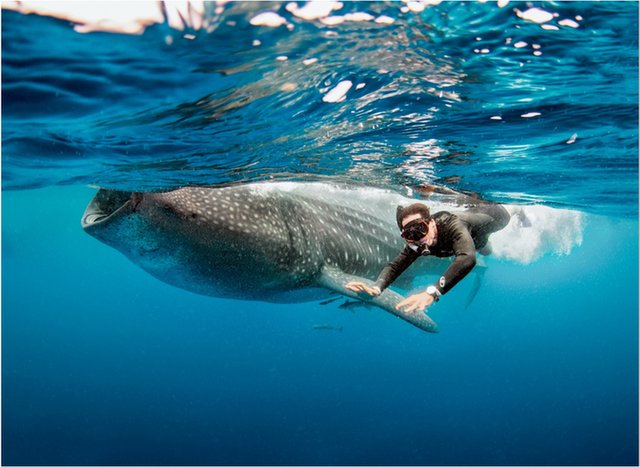AgainstWhaleSharkTourism
ChangingBehaviors
Somescientistsworrythatfeedingwhalesharksnearlyeverydaymightbedisruptive.Thenaturalbehaviorofawhalesharkistotravellongdistances.InOslob,mostwhalesharksmoveonafterafewdaysorweeks.Butabout4 percentstayyear-round.Scientistsdon’tknowwhy.Isapatternbeingcreatedbyfeedingthewhale sharks?
Researchersworrythatthesharksmaystarttodependuponpeopleforfood.Theymaybecomelesswaryofpeopleand boats.

Atouristtouchesthefinofawhaleshark.Touristsarenotsupposedtotouchthem,butmany do.
Abiggerproblemmightbethatthesharksconnectboatswithfood.Thesharksmaybedrawntoboats,hopingforatastyhandout.Thetouristcanoeshavepaddles.Yet,manyotherboatshavepropellers.Thewhalesharkscangethurtiftheyswimtooclose.Also,touristsaregivenrulestofollowwhentheydive,butmanybreaktherules.Willthisbeaproblemforthewhalesharks?Nooneis sure.
Thisisanaerialviewoftouristsinthewaterandinboats,interactingwithwhale sharks.
Whalesharktourismiscontroversial.Isitworthpursuing?Or not?
